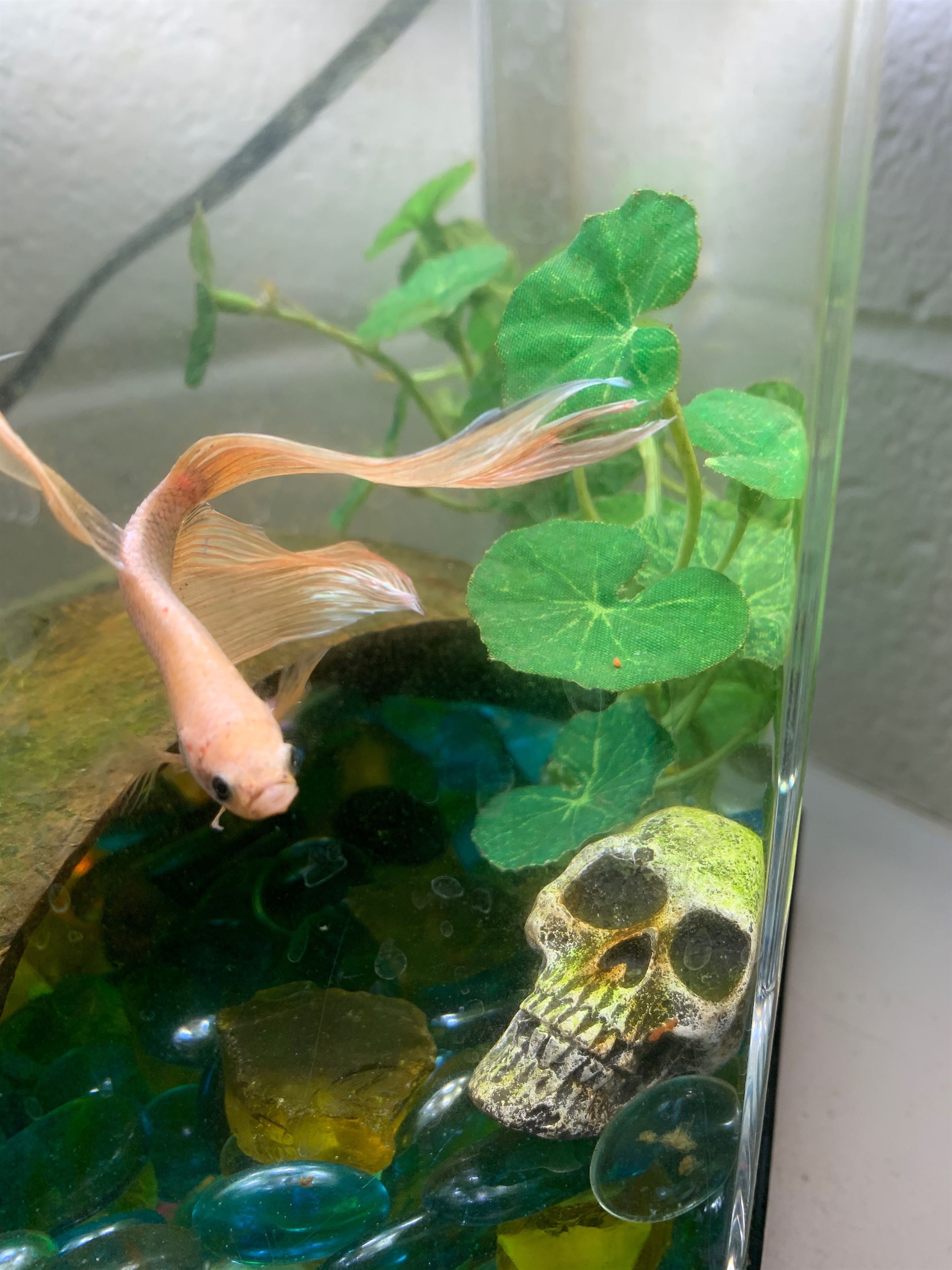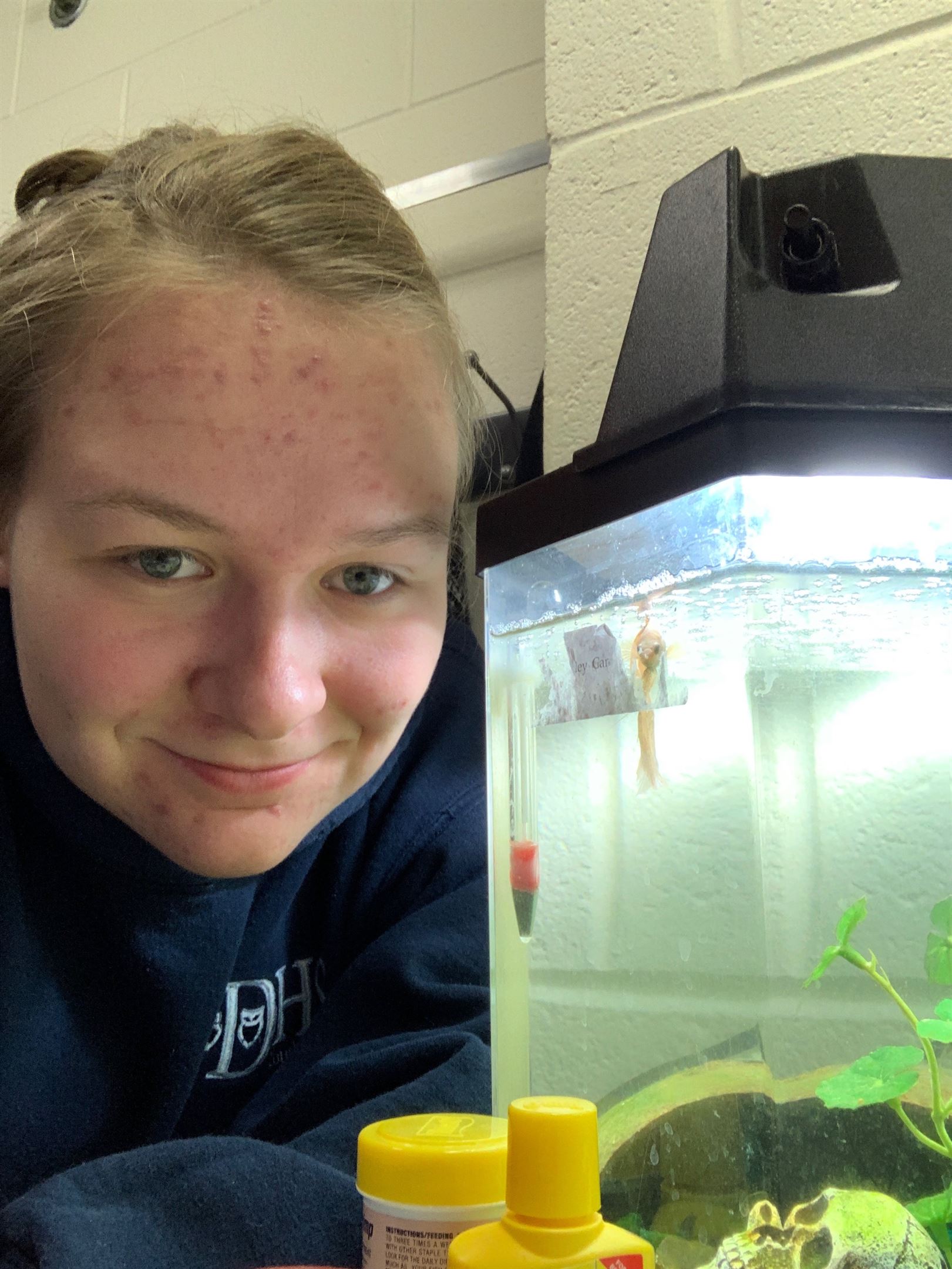Montclair State University has made a change in policy regarding the size of fish tanks in student dorms. While the previous one-gallon tank policy was put in place due to the lack of space in certain dorms, the university is now allowing, at maximum, five-gallon fish tanks.
Given that one-gallon tanks are not suitable for most fish to survive, students have successfully voiced their opinions about the policy issue.
A freshman majoring in journalism, Carly Campbell, had written an opinion piece in The Montclarion that sparked the change in fish tank policy.
“I never thought that the school would have read my article,” Campbell said. “It’s incredible that this change has happened and I’m glad that they increased the tank size.”
Nikita Williams is a voting student trustee at Montclair State University and was one of the many people that read Campbell’s opinion piece. Williams personally took part in addressing the issue.

Carly Campbell’s fish “Impeach” swims around in their small fish tank.
Carly Campbell | The Montclarion
“I saw an article questioning Montclair State’s one-gallon fish tank limit and I reached out to Dr. Kevin Schafer, the associate director for residential support services, to see if any students had brought this to his attention, but no one had,” Williams said.
She went on explain Dr. Schafer’s response.
“However, he saw to it that the policy was revisited to acknowledge student feedback and the limit has since been changed to what I see as a fair compromise.”
The main reason the previous policy allowed for only one-gallon fish tanks was due to the lack of space for larger fish tanks. There is also a risk for breakage, that could be damaging to school infrastructure.
A freshman and music education major, Elizabeth Caplan, is for the new policy because it will allow for fish to have more space.
“Keeping a fish in a small tank is not good for the fish because there is no space for the filter,” Caplan said. “I had a fish during the first week of school and it died.”
This new policy will allow fish to live a longer life in a more comfortable place.
“I encourage students, whether they write for The Montclarion or not, to share feedback with university leadership,” Williams said. “Many students do not realize how much of an influence they can have on-campus or how many administrators want to hear their opinion.”



